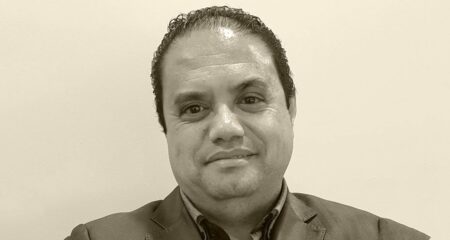
The Western Cape high court has ordered that parliament’s communications portfolio committee may not proceed with Tuesday’s closed meeting on the SABC board.
The ruling was handed down as an interim order shortly before noon by Acting Judge Sven Olivier, following an urgent application by the SA National Editor’s Forum (Sanef).
However, SABC chairman Ben Ngubane delivered a presentation on the fractious relationship between him and board members behind closed doors before the ruling was delivered.
“He put his side of the story. He admitted there was a breakdown of trust but he said he’s doing his job as best he can and the rest of the board was not functioning well,” Democratic Alliance MP Lindiwe Mazibuko told Sapa.
The meeting was expected to see disgruntled board members call for the suspension of SABC CEO Solly Mokoetle and contest Ngubane’s tenure, given tension between him and commissioners.
These arose partly from his decision to approve what the board sees as the irregular appointment of Phil Molefe as head of SABC news. The rift has plunged the broadcaster into renewed infighting, eight months after Mokoetle and the new board took up their posts.
Committee chairman Ismail Vadi decided to close most of the proceedings to the press, for fear of the legal implications of having somebody’s reputation and position challenged in public.
Sanef had on Monday through its lawyers asked the committee to open the meeting, but the committee decided on Tuesday morning that the session would stay closed to the public and media.
Sanef lawyers were in the Western Cape High Court as the meeting got under way with some 15 journalists from local and foreign news organisations staging a sit-in in the corridor in protest at being excluded.
When the committee failed to give an undertaking to suspend the meeting while the application was being heard, they asked acting judge Sven Olivier for the order.
Lawyers pressed ahead with the application even though parliament’s counsel Willie Duminy told the court that the committee had just decided that though it would continue in closed session, all documentation would be released to the media.
In his ruling handed down just before noon, Olivier ordered that the committee not proceed with any sitting from which the public, including the media, were excluded, at which it would receive presentations from the SABC board on a turnaround strategy, on filling the post of group executive, or on the functioning of the board.
This order would be valid until “the final determination of this matter”.
Roughly half an hour later, SABC board members filed out of the parliamentary meeting, saying they had been asked to leave until further notice.
Board member Suzanne Vos said commissioners had been told the meeting was suspended and MPs remained behind to discuss the implications of the court ruling.
After a further half an hour, opposition MPs left to forge a common position while those from the ANC remained behind to mull the order.
In an affidavit filed in support of the application, Sanef secretary-general Gaye Davis said there was a clear public interest in the meeting.
“The SABC is resourced with public funds, and the public has a clear interest in its functioning and a right to information concerning the affairs of the SABC,” she said.
“As a corollary, the media has a right and indeed an obligation to report on the functioning and affairs of the SABC.”
She said a dangerous a precedent would be set if the meeting was held behind closed doors.
It could become “a frequent resort by chairpersons of committees confronted with difficult issues that are potentially embarrassing for persons occupying public office”.
She said the committee’s decision to close the meeting went much further than necessary to protect and legitimate privacy or other issues.
“A crucial consideration, to which the portfolio committee seemingly had no regard … is whether the public interest in the disclosure of the information clearly outweighs the harm contemplated by its disclosure.”
Though there were provisions in the parliamentary rules for excluding the media, the committee had sought to protect privacy interests in a manner that was “overboard and disproportionate”.
Lawyers for Sanef and parliament are now expected to discuss a date for a hearing at which the matter can be fully argued. — Sapa
- Subscribe to our free daily newsletter
- Follow us on Twitter or on Facebook




